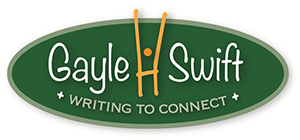 Last week we discussed how books can be a useful tool for the adoptive family. This week I’d like to examine a particular kind of book that many of you may be unfamiliar with: the lifebook.
Last week we discussed how books can be a useful tool for the adoptive family. This week I’d like to examine a particular kind of book that many of you may be unfamiliar with: the lifebook.
This is a unique and completely personal book that tells the story of your child’s life from the beginning. It includes the details from his birth and information about events before he was born.
Beth O’Malley, M.Ed, an adoptee, adoptive parent and adoption social worker, wrote “Lifebooks: Creating a treasure for Your Adoptive Child,” one of the best “how to” books on creating lifebooks. Their value to an adopted child can be huge. Taking the time to gather, save and record information, memorabilia, and photographs of the important people, places and events of a child’s life clearly conveys a vital message: his life story is valuable, worth remembering and worth retelling. A lifebook says, “Your story begins before adoption and because we love you, we value the history of your life from the beginning. We do not expect or require you to wipe the slate clean in order to embrace our joint life.”
Without these life-details, adopted kids report feeling rootless, at sea, hatched or alien. When parents capture the information and save it, they provide an affirmation and a tool that helps a child piece together their identity. Even in situations where almost no information exists, it is still possible and worthwhile to create a functional lifebook. Beth provides templates that will guide you through the process. She advises making it a family project. Here are some of the top reasons why your child deserves a lifebook.
1. Ground child in her history & beginnings Like all human beings, every adoptee was born, has a birth mother and birth father. Some adoptees were adopted at birth while others experienced lengthy intervals. Regardless of the amount of intervening time, every experience she faced and every person that walked through her life is an important element in her history.
2. Testimony to her history Beth O’Malley states that a lifebook“ honors every minute of … children’s lives.” It affirms their existence and allows parent and child to imagine being there together, celebrating her birth. It acknowledges the events that occurred in the child’s life and helps a child see what they faced, experienced and in some cases “survived.”
3. Physical tool A book is a neutral tool that allows a child to initiate adoption conversations. It gives her something tangible to frame her story and provides structure to her narrative.
4. Creates a normalizing effect Lifebooks document her life journey and identify ways in which she is just like other kids.
5. Provides Constancy and security The lifebook creates a permanent repository of children’s lives. Therapists and parents report that kids refer to it throughout their lives—even into adulthood.
6. Affirms the importance of her life from birth onward Asserts that her story deserves recording, repeating and revisiting. Intuitively, a child knows it takes time and effort to create a lifebook. At some level, a child infers that this means “she is worth it.”
7. Addresses difficult experiences Affirms the child’s survival of any difficult (sometimes horrific) circumstances and reiterates that the child is blameless for the events that led to his adoption. This helps a child to see himself as the hero of his own life.
8. Eliminates the temptation to “protect” a child from the tough facts of her life Information should always be shared in age-appropriate ways; tough stuff should not be withheld from a child. Secrecy generates shame and eventually secrets come to life. This revelation inevitably damages the trust relationship. “Unfortunately such well-meaning avoidance … leaves the child alone with his fantasies … and these are often more frightening, self-blaming and damaging than the actual facts.” Instead of hiding information, lifebooks allow parents (sometimes with the partnership of a therapist of social worker) to share it while being supported in the family.
9. Opens adoption conversations between child and parent Lifebooks provide a concrete place to start a conversation. A child can choose to read from the part of the book that connects with his current need.
10. Establishes a truth base which builds trust. Neither child nor parent has to put on a mask and pretend that adoption is loss and pain free or that certain events did not occur. This builds the family relationship on truth and encourages genuine connection.
11. Tracks the facts of her history and validates the emotions connected with them Lifebooks operate as a neutral container of the child’s life story line.
12. Builds foundation for attachment When you value my history, recognize my journey through difficulty and show I’m a survivor, it establishes that parents are strong enough to know the my story, accept it and love me–the real child who lived that story.


Gayle–
Love your article on lifebooks! So many reasons to make a lifebook and the child and family keep reaping the benefits. Thanks for your shout out on my book as well. Take Care Beth O’Malley
Glad you feel we respected your work.
Comments are closed.